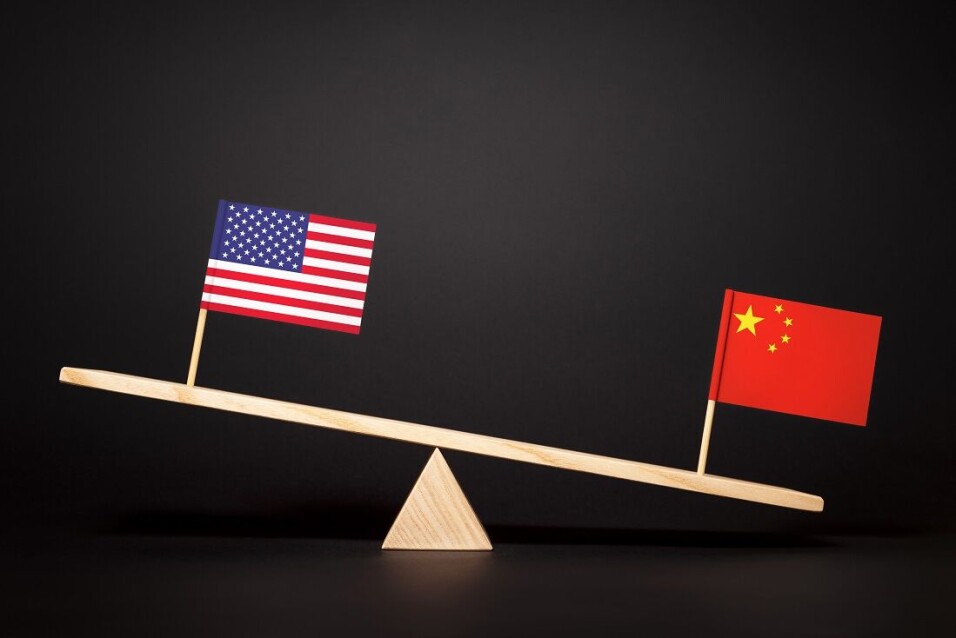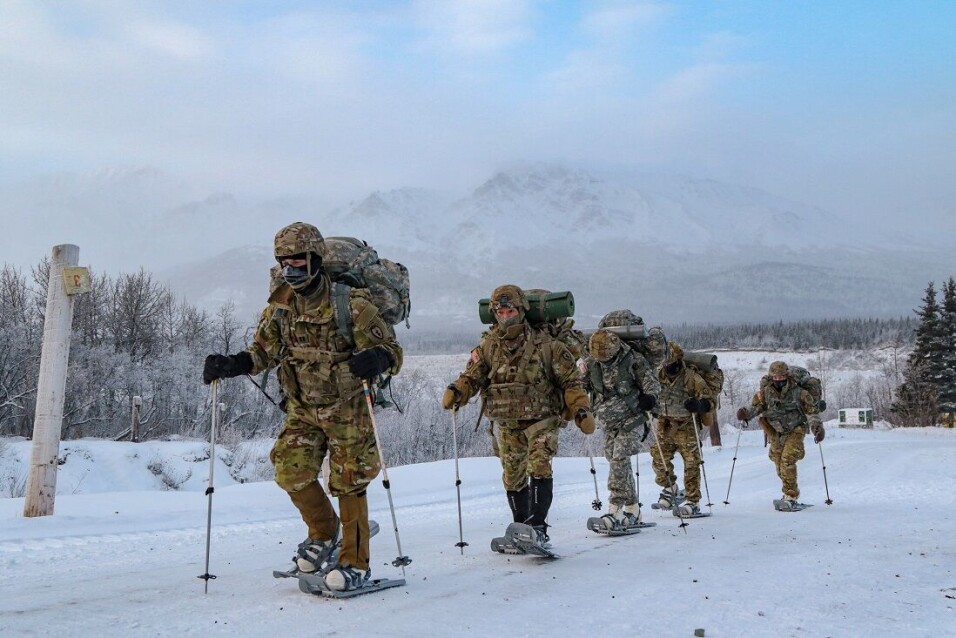THIS ARTICLE/PRESS RELEASE IS PAID FOR AND PRESENTED BY NTNU Norwegian University of Science and Technology - read more

Why the United States (almost) never withdraws completely
The United States received a lot of criticism when NATO Allies withdrew from Afghanistan. The United States almost never pulls all its military out of a country completely. But is that wise?
Once the United States has established military bases in a country or region, you can expect them to be staying for a while – even if the threat picture changes and soldiers are no longer needed right there anymore. Is that smart?
“The academic debate about this is divided. Many experts strongly believe that the United States is too involved in far too many regions,” says Jo Jakobsen, a professor at NTNU’s Department of Sociology and Political Science.
But not everyone agrees. The United States has approximately 750 military bases spread across at least 80 of the world’s countries. Many of these bases have been established by the United States over the past 70 years. The United States has closed hundreds of bases, but has constantly created new ones as well.
“The counterforces are significant. Critics like to point to increased external threats that would arise if they withdrew. Their claims include that the enemies of the United States would fill the vacuum and – not least – that a withdrawal could reduce the United States’ credibility,” says Jakobsen.
His recent book The Geopolitics of U.S. Overseas Troops and Withdrawal addresses this very point: the US strategy of retaining forces in a country or region once established there.
Trump wanted out of several regions
“In Donald Trump, the USA got a president who absolutely believed that the USA is too involved in far too many regions,” says Jakobsen.

However, Afghanistan was actually the only country where the United States and allied forces withdrew during the Trump administration. The evacuation was completed during Biden’s presidency,” says Jakobsen.
Several observers considered Afghanistan’s forces among the worst in the world because they were not really motivated to fight. Their forces did indeed collapse even before the last foreign troops had left the country.
The reactions from commentators, Afghans, allied forces and others were harsh and negative, giving even more fodder to those who believe that the United States needs to have a strong presence in many places.
The United States stays on for security
“The United States prefers to stay, reasoning that ‘better safe than sorry’ is the best bet, an approach that likely has its explanation in human psychology,” says Jakobsen
Proponents of the US maintaining a presence in a country may overemphasize worst case scenarios, but this actually has a potentially real basis.
“Things could certainly go haywire if the US pulls out,” says Jakobsen.
In a way, this is exactly what happened in Afghanistan. It hasn’t been good for the reputation of the United States. Biden gets stung in the polls, even though the pull-out was Trump’s idea to begin with.

American elite want to stay
“For over 70 years, the debate has been dominated by the “stay-in” proponents, to whom the majority of the American foreign policy elite belong. This attitude hasn’t changed, and there’s little reason to believe that it will change in the foreseeable future,” says Jakobsen.
Opinion usually splits roughly down the middle, but is of little consequence.
“In particular, this elite has the credibility and entire American empire in mind,” he says.
The professor believes that even discussions about minor withdrawals of only a few troops might signal something much broader, whether the news is from Somalia, Syria, Germany, South Korea or elsewhere.
“It could be interpreted that the US is on its way to losing its superpower status, that alliance obligations are in disrepair, or that the will to curb authoritarian superpowers or terrorists is diminished,” says Jakobsen.
- You might also be interested in: Are European NATO states freeloading?
Power in fact less now
A strong military presence can thus help strengthen the United States’ reputation internationally – and that may be needed.
The relative power of the United States has been steadily declining for 20 years. This applies first and foremost to China, but also to Russia, which has increased its relative power quite a bit during the same period. This power shift is also the case relative to a number of other countries, Jakobsen believes.

The United States faces a classic threat in Asia.
“China is a growing superpower that really has the potential to eventually become the global rival of the US,” says Jakobsen.
The United States, also under Trump, strengthened its presence there.
Several reasons worldwide
“I also expect the US to stay in Europe, and maybe even strengthen its presence here,” Jakobsen say. “If the Americans disappear, Russia would have far greater elbow room to increase its influence, which would change the European order that has largely been shaped by the United States.”
Virtually all of the more recent presidents have wanted to have a smaller presence in the Middle East, but wishing has not helped reduce it either.
“I expect the United States will stay in the Middle East. The United States has a greater presence there now than in the 1990s, although the war in Iraq has of course adjusted it downward,” Jakobsen states.
The United States will probably also become more involved in parts of Africa, partly because Russia, China and various jihadist groups are prepared to move in wherever the United States is less present.
There is little to indicate that the United States will step down significantly anywhere in particular.

Military is the last to leave
All superpowers lose their position of strength in the end – whether that takes decades, centuries or longer. But the United States has no plans to give up its dominant role without a fight.
“Presumably, a USA that’s really on the decline as a global and regional power factor, will continue to remain with large resources, or even increase its military presence in several places,” says Jakobsen.
Not least, they would do this to maintain the impression that US power is the same as it has been for generations.
Other nations, with Russia and China at the forefront, will test this credibility all the time, hoping to show that US power is weakening.
For the time being, this geopolitical pressure gives the United States good reasons to do the opposite of withdrawing, says the professor.
“The US military presence around the world is probably the symbol of US power that will last the longest. The day this network of bases and stationed soldiers really starts to crack, things could happen quickly, in a kind of snowball effect,” Jakobsen believes.
Reference:
Jo Jakobsen, The Geopolitics of U.S. Overseas Troops and Withdrawal. https://link.springer.com/book/9783030944872
The book can be found here and here.
See more content from NTNU:
-
Fish farming is least harmful to the seabed in the north
-
Study: Centralising hospitals has reduced birth mortality
-
Early testing of schoolchildren: “We found absolutely no effect”
-
This determines whether your income level rises or falls
-
Why is nothing being done about the destruction of nature?“We hand over the data, but then it stops there"
-
Researchers now know more about why quick clay is so unstable





































